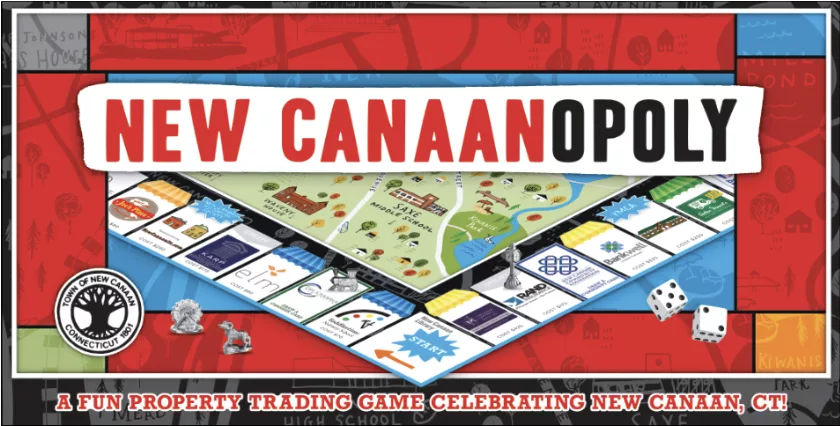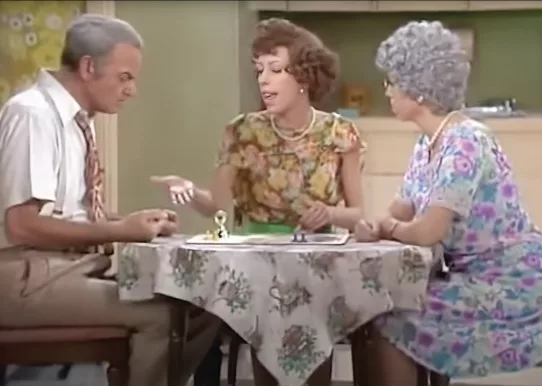
By John Engel
Sun Tzu said, “Know your audience,” and I’m writing for homeowners. My readers own their homes, sometimes several, and are expert at solving life’s problems. What real estate advice can I possibly offer? This is Part One: Winning. Next week is Part Two: Giving It to Your Kids.
What we know about real estate, we learned playing games.
Monopoly, (c.1935, 275+ million sold), originally known as “The Landlord’s Game,” is an eight-year old’s first taste of bankruptcy. It’s dog-eat-dog, absolutely mercenary, teaching what it means to gain control and wipe out everybody else. I win, you lose. With only 22 streets available, the Monopoly board looks like the New Canaan, Darien, or Wilton markets this month, with 25 to 36 single family homes available in each town.
Risk (c.1957), teaches real estate acquisition the old-fashioned way: Plant a flag and just take Panama, Greenland, or the Crimea until your opponent objects with an army. I know, that’s a bit cynical in 2025, but still. Unless you’re a dictator, Risk is a bit abstract for most of us, while Monopoly is how-to.

The Game of Life (c.1960, 50+ million sold) promotes the 1950’s suburban dream: buying a home in a place like New Canaan. Winning includes taking out college loans and a mortgage within a traditional family structure. The hipper, more progressive version is The Sims (c. 2000, 200+ million sold), an open-ended simulation of the daily activities of virtual people, now available online as a massive multiplayer game.
Sim City (The Sims predecessor, c. 1989) teaches the importance of zoning and the challenges of managing a modern-day New Canaan. The goal is to balance tax-rates with amenities like parks, schools, and hospitals. Raise taxes and everybody moves to Florida. Lower taxes and you can kiss our $30 million police station goodbye. Like Sim City, we are always building and demolishing, rezoning, and improving. The game teaches systems thinking — how small policy choices ripple across an ecosystem — making it both an entertaining and subtly educational simulation of urban planning and governance. Turning on “disaster mode” could spawn a hurricane in the game or an adverse law from Hartford in life.
We don’t learn about mortgages in school — we are introduced to them playing Monopoly as eight-year-olds (as recommended by Parker Brothers) and as adults from YouTube, Reddit, and Realtors. The Sims goes where Monopoly and The Game of Life can’t, introducing credit cards, non-linear life paths, and sex to make it the best-selling PC game of all time. Like and unlike Monopoly, The Sims reduces winning to accumulated wealth, even if a player ends up in massive debt.
Monopoly has been studied, both gameplay and what it teaches us about ourselves and the current real estate market. Truman Collins’ large-scale probability analysis “Probabilities in the Game of Monopoly” and Tim Darling’s “How to Win at Monopoly” use computer simulations to calculate landing frequencies, break-even times, and return on investment of each property. We do this in life. Ask me which New Canaan listings have the highest upside and which ones break even quickly.
Social psychologist Paul Piff’s Ted Talk, “Why Rich People Tend to Think They Deserve Their Money,” discusses experiments at UC Berkeley using “rigged” Monopoly to study how advantages affect behavior. Players with more starting money and extra dice are more dominant, taking up more space at the table, eating more pretzels, and making more noise. They’re less empathetic, amplifying entitlement and assertiveness. They bang the piece loudly as they move around the board. This aligns with broader research on how power influences empathy and cooperation. In New Canaan, we see it in the emergence of bidding war behavior.
When rich players (who were given advantages) were asked why they had won the game, not one attributed it to luck. It’s their acumen, competencies, and the decisions they made. In life, buyers (and their agents) also confuse luck with skill. Sellers need both to create a bidding war, and buyers need both to win one.
The most efficient way to win? Buy the orange and red properties and exploit the housing shortage. These properties are landed on most frequently. Building three houses on each maximizes ROI because rent increases significantly while tying up 18 of the game’s limited 32 houses.
The lack of housing stock is well documented, both in New Canaan and nationally. Investors with 1,000+ homes only make up .3% of home sales (none of the 22 properties or 32 houses on the Monopoly board). In New Canaan, institutional investors are constrained by tight multifamily zoning and rising rates. Speculative builders stop when rising labor, materials, and land prices force them to price properties like Boardwalk — risky indeed.
Monopoly strategists say you should buy every property you land on early to increase chances of securing a monopoly or gaining trading leverage. Utilities have a low ROI, only 3% chance of profit, and railroads succeed only if you own all four. Stay out of jail early. Protect yourself from opponents’ high rents by sitting in jail late in the game. Jail can be a metaphor for real estate-related laws such as bankruptcy protection, homesteading, mortgage deductions, 1031 exchanges, tax deductions, and capital gains vs. income tax, all designed to help real estate over other investment classes.
We learn players fixated on high-value properties like Boardwalk tend to prioritize prestige or take bigger risks compared to those targeting orange/red properties who might be more calculated, focusing on statistical efficiency. When we react poorly to bankruptcy or argue rules, social scientists say we demonstrate “lower emotional resilience.” Monopoly, the game that teaches tough love. Don’t read too much into it. Piff’s studies have been criticized for implying causation where only correlation exists.
House Rules. Studies show 60%-80% of games involve modifications like Free Parking windfalls or doubling GO payouts. This prolongs games by injecting extra money and then keeping money in circulation, reducing bankruptcy rates. Therefore, a two-player game has a 12% chance of running indefinitely when we disrupt the game’s zero-sum mechanics. The real-life parallels are stunning: quantitative easing, manipulated rates, an increased debt ceiling, increased money supply, the forgiven Covid-era PPP loans, federal borrowing and spending, tariffs, the financial crisis, and too-big-to-fail bailouts are some of the ways of injecting liquidity into a system that does not want anybody to go bankrupt. Adding politics to Monopoly is just a form of House Rules. Nobody ever said life was fair.
Notes from the Monday Meeting: 118 Old Kings Hwy sold at auction, $540,000, subject to a statutory right of redemption. Two high-end listings returned to the market this week at higher prices, while another came back to market reduced by half a million. In the sweet spot, a $2.6 million listing sold for just under a million more. These are strange times.
John Engel is a broker on The Engel Team at Douglas Elliman in New Canaan. His grandparents lived in their Stamford house for 40 years and paid off the $15,000 mortgage in the 1950’s. Not John. He’s traded up and down six time, and it’s likely he’ll be paying off a low-fixed-rate mortgage in his 80s. Getting in young and trading up along the way is how some afford New Canaan.


